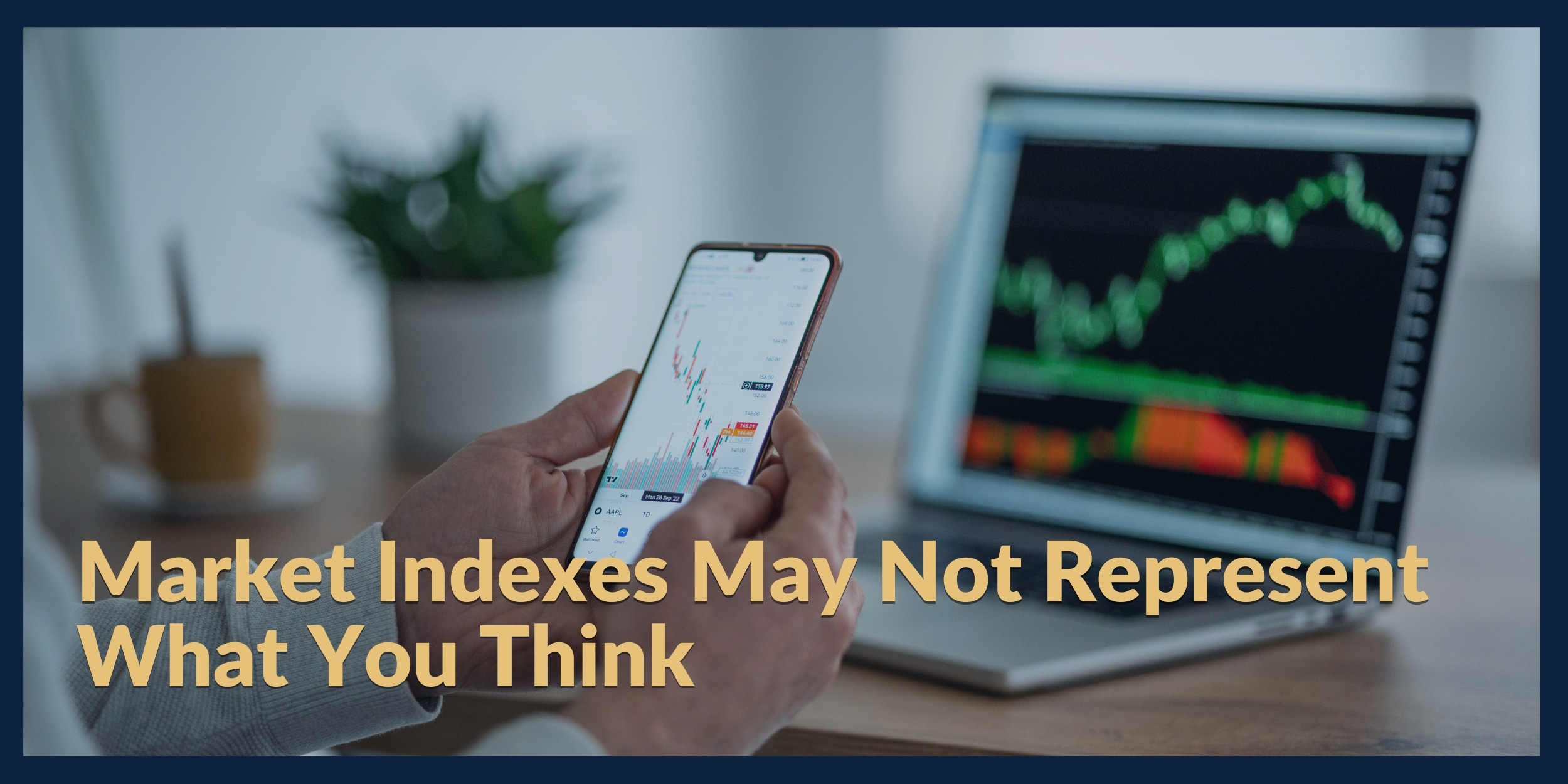Market Indexes May Not Represent What You Think

This article was originally published in full on Tacoma’s The News Tribune on May 6, 2024. Gary Brooks has been a contributing author for the paper since 2008 and is also a Partner and Senior Wealth Advisor at Mission Wealth in Gig Harbor, WA.
The Illusion of Market Indexes
For many people, their sense of how investments are performing comes from 30-second blitzes of radio or television news (or a quick glance at a phone app) that share the day’s return for the Dow and the S&P 500 – two different subsets of U.S. stocks. These data nuggets have almost no relevance to how you should think about the performance of your investment portfolio.
Comparative Benchmarks vs. Personal Goals
It can be helpful to have a comparative benchmark to understand how your strategy has performed relative to the global marketplace of investments. However, the only true measure of your investment performance should be whether your strategy supports your broader financial plans. Your personal financial goals are the compass that guides your investment decisions, ensuring you are in control of your financial future.
It’s important to remember that achieving financial security doesn’t necessarily require your portfolio to outperform any commonly reported index. The widespread reporting of index results often leads to unnecessary pressure, even though most people have limited knowledge about the indexes they’re supposed to ‘beat’ to ‘win’ the investing game.
Three Examples of Why Market Indexes May Be Less Relevant Than You Expect:
1. Dow Jones Industrial Average: A Narrow View
The most recognizable stock market index is the Dow Jones Industrial Average. The “Dow” is reported as a proxy for the U.S. stock market even though it tracks only 30 stocks. The included companies represent a cross-section of industry leaders selected by a committee. For example, IBM was removed from the Dow in 1939 and replaced with AT&T, only to be re-added in 1979. This change left the Dow 22,000 points lower than it would have been if IBM had not been replaced.
The Dow’s value inched close to 40,000 at the end of March 2024. With the change of one company in the index, the value of the index could have been more than 50 percent higher than it is today. Such methodology does not provide a useful measure of how an investment strategy is doing.
2. S&P 500: Broader, Yet Incomplete
The S&P 500 includes a broader representation of U.S. stocks by incorporating a diverse set of 500 companies. However, it does not strictly consist of the largest 500 companies. As of March 2024, the S&P 500 included 430 of the largest 500 companies in the U.S., with the missing 70 companies representing over $2 trillion in market value.
A notable example is Lululemon, which grew significantly before being added to the S&P 500 in October 2023. The stock price had more than quadrupled in the 65 months between when it entered the largest 500 and was added to the index.
More and more frequently, indexes are considered not only as representations of markets for comparison’s sake but also as investment vehicles themselves. This can lead to some unexpected differences.
3. Russell 2000: Small-Cap Challenges
The Russell 2000 Index measures small-cap company U.S. stocks, including the smallest 2000 companies in the Russell 3000 index, which is a benchmark for the whole U.S. stock market. However, different methodologies can lead to varying performances among small-cap indexes.
For instance, the Vanguard Small-Cap Index Fund (which can be purchased as an exchange-traded fund using ticker VB) – over the period from its inception 1/31/2004 through 4/25/2024, generated 100 percentage points more cumulative gain (339.6 percent vs. 239.9 percent) than the iShares Russell 2000 Index ETF (IWM). Both represent small-cap U.S. stocks but with different methodologies for which companies are included.
Beyond Indexes: Focus on Financial Security
Indexes have many idiosyncrasies, and no single index should be used to evaluate a broadly diversified portfolio of U.S. and international stocks and bonds. Instead of emphasizing indexes as a measure of your investments, find a way to measure your progress toward lifetime financial security. That’s the measure that truly affects your personal finances.
Consult with a CERTIFIED FINANCIAL PLANNER™ at Mission Wealth today for a better understanding of your financial and investment goals and how the market can impact your plan overtime.
Customized Investment Management Solutions
At Mission Wealth, we develop customized, globally diversified, tax-efficient portfolios tailored to your financial plan and built to stand the test of time. Contact us below for a free portfolio review.Investment Advice Fit For Your Needs
At Mission Wealth, we are deeply rooted in an evidence-based investment strategy built on decades of Nobel Prize-winning research. We ignore the media noise and Wall Street hype, relying instead on a long-term approach and proven principles that reward investors over time. For more information on Mission Wealth's investment strategies, please visit missionwealth.com.
To meet with a Mission Wealth financial advisor, please contact us online today or call us at (805) 882-2360.
Mission Wealth is a Registered Investment Advisor. This commentary reflects the personal opinions, viewpoints, and analyses of the Mission Wealth employees providing such comments. It should not be regarded as a description of advisory services provided by Mission Wealth or performance returns of any Mission Wealth client. The views reflected in the commentary are subject to change at any time without notice. Nothing in this commentary constitutes investment advice, performance data, or any recommendation that any particular security, portfolio of securities, transaction, or investment strategy is suitable for any specific person. Any mention of a particular security and related performance data is not a recommendation to buy or sell that security. Mission Wealth manages its clients’ accounts using a variety of investment techniques and strategies, which are not necessarily discussed in the commentary. Investments in securities involve the risk of loss. Past performance is no guarantee of future results.
Let's Keep in Touch!
Subscribe for exclusive content and timely tips to empower you on your financial journey. Our communications go straight into your inbox, so you'll never miss out on expert advice that can positively impact your life.Recent Investment Insights Articles

Market Update 1/29/26
January 29, 2026
Market Update 1/20/26
January 20, 2026


